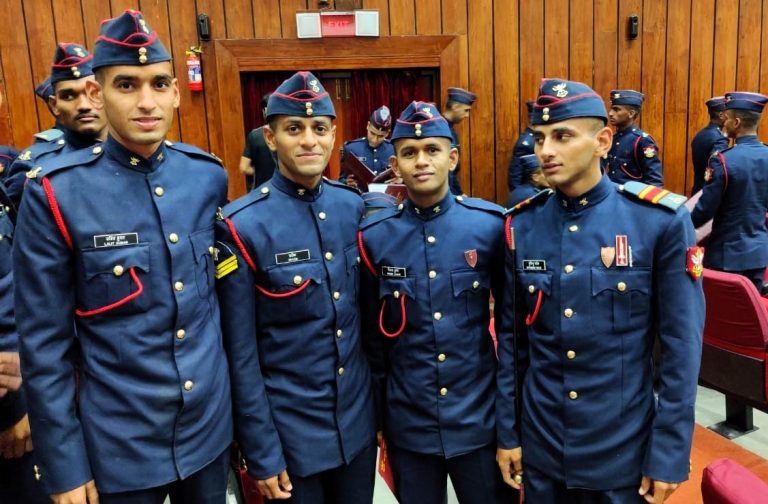The National Defence Academy (NDA) entrance examination is one of the most prestigious and competitive exams in India. Aspiring candidates undergo rigorous preparation to crack the exam and secure a position in this esteemed institution. Among the various subjects, chemistry holds a significant weightage, and within it, the topic of isolation techniques is crucial. In the NDA 1 2024 examination, the incorporation of Multiple Choice Questions (MCQs) pertaining to isolation techniques in chemistry lectures carries immense importance. This article delves into the significance of MCQs in aiding NDA aspirants to comprehend and excel in this subject matter.
Comprehensive Assessment: MCQs serve as an effective tool for assessing the understanding and retention of fundamental concepts in isolation techniques. These questions cover a wide spectrum of topics including extraction processes, purification techniques, and separation methodologies. By presenting candidates with diverse scenarios and options, MCQs evaluate their ability to apply theoretical knowledge to practical situations. In the context of NDA 1 2024, mastering isolation techniques through MCQs is imperative as it reflects the thoroughness and proficiency of candidates in this subject area.
Enhanced Conceptual Clarity: The formulation and solving of MCQs necessitate a deep understanding of the underlying principles of isolation techniques in chemistry. As candidates engage with these questions, they are compelled to analyze the intricacies of various processes such as distillation, chromatography, and crystallization. Through this process, conceptual clarity is achieved, enabling aspirants to comprehend the nuances of each isolation method and its applicability in different contexts. Consequently, the mastery of isolation techniques through MCQs facilitates a holistic understanding of chemistry, thereby strengthening the foundation of NDA aspirants.
Time-Efficient Preparation: In the realm of competitive examinations like NDA, time management is paramount. MCQs offer a time-efficient mode of preparation as they enable candidates to assess their knowledge and problem-solving skills within a stipulated timeframe. By practicing MCQs regularly, aspirants can enhance their speed and accuracy in tackling questions related to isolation techniques. Moreover, the structured format of MCQs allows candidates to identify their strengths and weaknesses, thereby enabling targeted revision and focused improvement in specific areas. Thus, the strategic utilization of MCQs optimizes the preparation process for NDA 1 2024 aspirants, ensuring comprehensive coverage of isolation techniques.
Adaptive Learning: MCQs foster adaptive learning by presenting candidates with a range of difficulty levels and question types. Aspirants encounter questions that vary in complexity, requiring them to adapt their problem-solving strategies accordingly. This adaptive approach cultivates resilience and agility in candidates, preparing them to tackle diverse challenges posed in the NDA 1 2024 examination. Additionally, MCQs encourage self-assessment and continuous improvement, as candidates strive to overcome obstacles and conquer progressively difficult questions. By embracing the adaptive nature of MCQs, NDA aspirants can fortify their skills in isolation techniques, thereby augmenting their overall performance in the examination.
Conclusion: In the pursuit of success in the NDA 1 2024 examination, the significance of MCQs in isolation techniques within chemistry lectures cannot be overstated. These questions serve as a comprehensive assessment tool, fostering conceptual clarity, enabling time-efficient preparation, and promoting adaptive learning. By diligently engaging with MCQs, aspirants can strengthen their grasp of isolation techniques, thereby enhancing their prospects of excelling in the chemistry section of the NDA entrance examination. Aspiring cadets are encouraged to harness the potential of MCQs as a vital resource in their journey towards realizing their dreams of serving the nation through the National Defence Academy.
Isolation Techniques MCQs
- Which Of the Following Separation Methods Should Be Adopted To Separate
An Aqueous Mixture Of Common Salt Contaminated With Limestone?
A. Use of separating funnel and then filtration of the aqueous mixture
B. Distillation and then use of a separating funnel
C. Sublimation and then distillation of the aqueous mixture
D. Filtration and then evaporation of the aqueous mixture
ANSWER: D - Which Of the Following Method Is NOT Used For Separation Of A Solid And A
Liquid?
A. Fractional Distillation
B. Evaporation
C. Filtration
D. Purification by Crystallization
ANSWER: A - Which Of the Following Methods Can Be Used to Separate Acetone and Water
from Their Mixture?
A. Chromatography
B. Fractional distillation
C. Distillation
D. By using a separating funnel
ANSWER: C - A magnet could be used to separate
A. sand and salt
B. sand and iron filings
C. water and sand
D. colours in a food dye
ANSWER: B - The Phenomenon of Water Being Able to Rise Up a Narrow Tube Is Called
A. distillation
B. capillary action
C. chromatography
D. filtration
ANSWER: B
For More MCQs On This Topic Refer To the video & Attached PDF
















